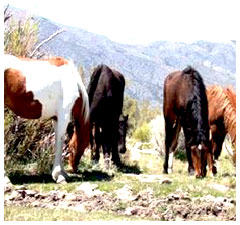|
||||||||||||||
_____________________________________________________________________________________________
Recommendations:
Provide your horse with the largest living environment possible.
Board your horse in a pasture environment with other horses.
Turn-out with another horse or horses.
Stable with at least one other horse. Avoid solitary stabling where interaction in any form is non-existent.
|
310.713.0296










